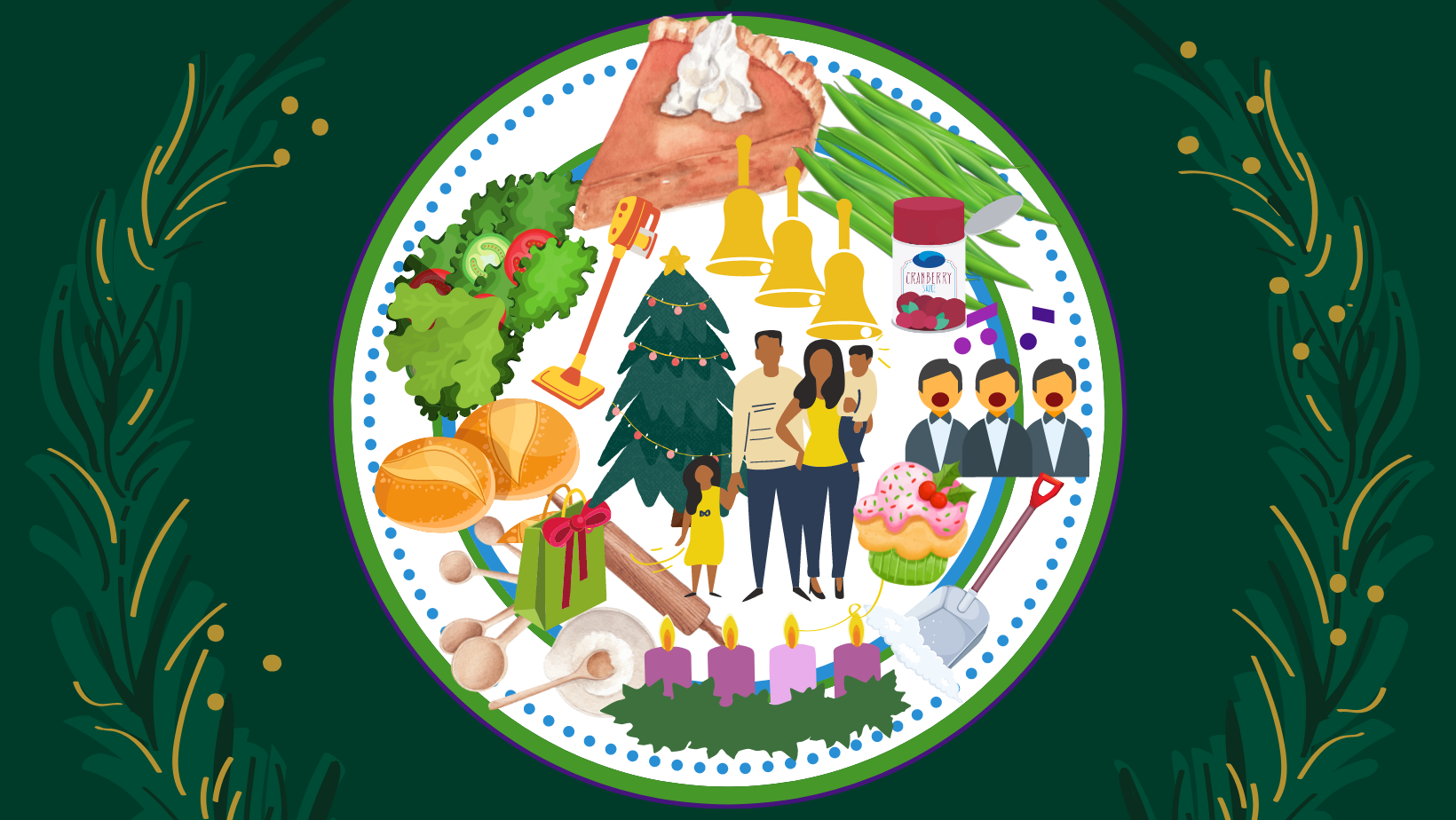How Are We Being Called To Fill Our Plates This Holiday Season (And Beyond)?
This past summer, my brother lent me a book that he thought I would enjoy titled Slow Church.* It came out in 2014, so it has been around awhile, and some of you may have already read it. Upon reading the first few pages, I not only immediately resonated with the authors, but found myself wanting to speed through reading a book that was focused on slowing down!*
The premise of Slow Church is to challenge communities of faith to “ask ourselves tough questions about the ground our faith communities has ceded to the cult of speed,” to invite us to consider the consequences of these actions (such as a decrease in meaningful connections), and to ask us to “rethink the ways in which we share life together in our church communities.”
Slow Church, as well as several other “Slow Movements” (ex. slow schools, towns, lives, etc.), were inspired by the language and philosophy of the Slow Food Movement, which “is a global, grassroots organization, founded in 1989 to prevent the disappearance of local food cultures and traditions, counteract the rise of fast life and combat people’s dwindling interest in the food they eat, where it comes from and how our food choices affect the world around us.”
In a nutshell, what these “slow movements” have in common is their emphasis on the importance of meaningful relationships within the contexts of our churches, communities, the food we eat, Creation, and with God.
We are about to enter the holiday season, a time when many things seem, figuratively and literally, to stack up on our plates – preparing for the arrival of guests, endlessly long to-do lists, countless rich foods, etc. This is when many people find themselves just trying to hold on the best they can and/or “ingesting” what is put in front of them until they make it into the new year… where they then hope to regroup! We want to encourage you, as these “slow movements” suggest, to slow down. Hopefully, this practice will help you to have a healthier/more sustainable pace through the holiday season, which will allow you to be more intentional about what you are putting on your plate (again, figuratively and literally) as well as afford you the opportunity to spend more time on the important relationships in your life.
Here are several reflections for your consideration:
- Before putting something on your plate (figuratively and/or literally), think about how it may make you feel later. Is it going to be nourishing? Energizing? Joy-filled? Or, is it going to make you feel sluggish and/or weighed down?
- How sustainable (physically, mentally, emotionally, spiritually, relationally, environmentally, etc.) are the items you are putting on your plate? Are there healthier alternatives you could choose instead? For some examples, check out:
- Consider participating in an Advent Fast (some resources for this are provided in this edition of our newsletter).
- This spiritual practice is not only a part of the Christian tradition (although it is often overlooked), but it is also a wonderful opportunity to slow down and consider what one is putting on their plate in preparation for the coming of Christ and in anticipation of the new year.
May all be well with you this holiday season and into the new year!
Karen H. Webster
HSHC Co-founder/Executive Director
“You must understand this, my beloved brothers and sisters: let everyone be quick to listen, slow to speak, slow to anger,” (James 1:19)… and slow with what we put on our plates.
*While I liked the overall premise of the book, there are some aspects of it that aren’t feasible for many communities of faith (example – they strongly emphasize the importance of “local” – attending a congregation close to our homes and shopping and working as locally as possible. These are all great ideals, but not realistic for a lot of people). As one reviewer wrote, and I agree, the greatest strength of this book is to use it in a small-group setting, where the ideas mentioned in the book can help to generate new possibilities that are fitting for the congregational context.

